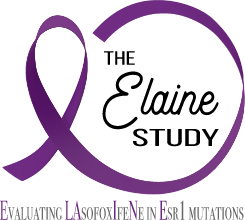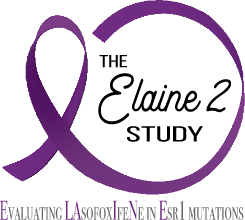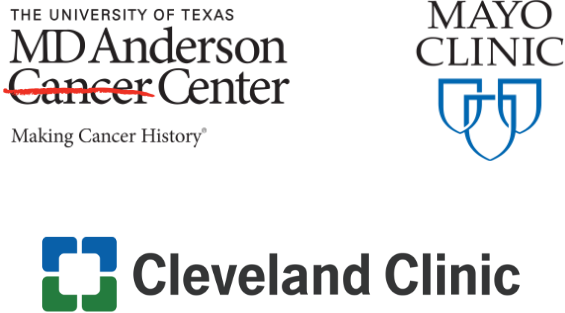What are the ELAINE studies?

The ELAINE studies are investigating an oral drug, lasofoxifene, in women and men with locally advanced or metastatic estrogen receptor-positive/human epidermal growth factor 2-negative (ER+/HER2-) breast cancer expressing an estrogen receptor 1 (ESR1) mutation.
ELAINE-1 and ELAINE-2 are active with enrollment complete. Enrollment is currently open for ELAINE-3, a large, randomized, phase 3 study with clinical trial sites across the United States, Europe, Asia-Pacific, Israel, and Canada.


Who is Elaine?
The ELAINE studies are dedicated in memory of Elaine Davidson Nemzer, MD, the sister of Sermonix co-founder Miriam Davidson Portman, MD. Elaine was a brilliant and compassionate child psychiatrist whose life was cut short by metastatic breast cancer at the age of 47. She was the author of several textbook chapters on psychiatry and a dedicated therapist, teacher, colleague, wife, mother, sister, and friend. Even during her illness, she was a source of comfort and hope to all those she encountered, and her spirit continues to serve as an inspiration to the Sermonix team, filling us with passion and purpose.

About the ELAINE-1 study
Primary Objective:
Evaluated the impact on progression-free survival (PFS) of 5 mg of oral lasofoxifene versus injectable fulvestrant, a treatment commonly used in this population.1
103
total patients
were enrolled in ELAINE-11
35
US trial sites
+
45
international
including Mayo Clinic, Ohio State University, Washington University School of Medicine, and Sheba Medical Center (Israel)1




Sermonix Pharmaceuticals and associated logos are trademarks of Sermonix Pharmaceuticals. All other trademarks are property of their respective owners.

About the ELAINE-2 study
Primary objective:
Evaluate the safety and efficacy of the combination of lasofoxifene and abemaciclib.4
Proudly partnering with Lilly® and Verzenio®
29
total patients
were enrolled in ELAINE-24
15
trial sites
including MD Anderson, Mayo Clinic, and Cleveland Clinic4




Sermonix Pharmaceuticals and associated logos are trademarks of Sermonix Pharmaceuticals. All other trademarks are property of their respective owners.
References: 1. Data on file. Sermonix Pharmaceuticals; 2023. 2. Cogliati V, Capici S, Pepe FF, et al. Life (Basel). 2022;12(3):378. 3. Angus L, Beije N, Jager A, Martens JW, Sleijfer S. Cancer Treat Rev. 2017;52:33-40. 4. Evaluation of Lasofoxifene Combined With Abemaciclib in Advanced or Metastatic ER+/HER2- Breast Cancer With an ESR1 Mutation. ClinicalTrials.gov identifier: NCT04432454. Updated June 7, 2022. Accessed July 20, 2022. https://clinicaltrials.gov/ct2/show/NCT04432454
Send me the latest news
By subscribing, you agree to receive the latest news and updates from us.
